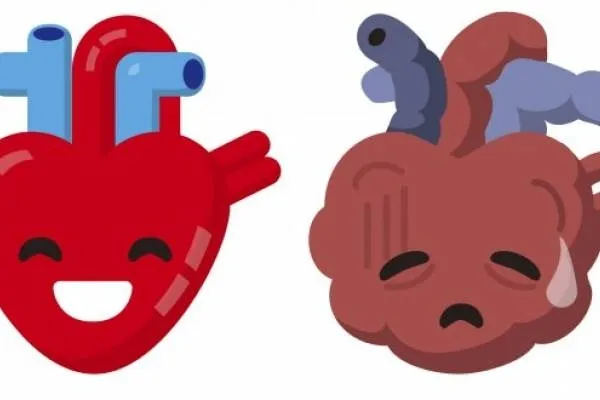According to data from the Diabetes Foundation and its study 'di@bet.es', "13.9% of Spaniards over 18 have type 2 diabetes, which is equivalent to more than 5.3 million people.
Of them, almost 3 million were already diagnosed, but 2.3 million are unaware that they suffer from the disease. "They are extraordinarily worrying data.
Type 2 diabetes is a metabolic disease that causes our body to become insulin resistant.This hormone is responsible for regulating the amount of sugar (glucose) in blood.
When the body loses this capacity, it risks the effects of constant hyperglycemia, which, according to the Mayo Clinic, consists of "increased thirst, need to urinate often, increased appetite, involuntary weight loss, fatigue, fatigue,Blurred vision, sores that take to heal, frequent infections and darkened leather areas, usually in the armpits and neck. "
Normally this condition is treated with changes in lifestyle, especially in exercise and food, but in extreme cases it is usually used to injected insulin.Now, a group of scientists from the University of McMaster, in Canada, has discovered that a diabetes medicine could also protect us from cardiovascular diseases.
"Those suffering from type 2 diabetes are twice as likely to suffer cardiovascular accidents,"
The best of all is that, citing the television Doctor House, the publication that has made known this study is not 'Coconut Dolores Molones del Sur de Nueva Delhi', but the very 'The Lancet'.
In other words, it is not published by a second magazine, but one of the best in the world.And it is not surprising if we look at the methods that the group of researchers led by Dr. Hertzel C. Gerstein: 371 clinics in 24 countries, 9,901 participants.A randomized, double blind and placebo -controlled study.For explaining the meaning of all this: not only does the expected quality standards of a good scientific work meet, but also overcome them.
Of the 9,901 study subjects, 46.3% were women.Half of them (4,952) were provided with a medication called Dreamaglutida.This is designed to stimulate insulin release by pancreas and decrease blood glucose levels.The rest of the participants (4,052) were given a placebo.
What researchers were not expected is that among the side effects of this medicine were diarrhea, constipation and prevention of cardiovascular diseases.While in the control group (those who took placebo), neither an increase nor a decrease in the prevalence of heart attacks or other diseases of the circulatory system was described, in the group that did take medicine the incidence of these conditions throughoutOf the 5 years after the administration of the drug, 12%was reduced.
This, although of relevance for all of us, because the diseases of the circulatory and heart system are the ones that produce the most deaths in the world, it is especially important for type 2 diabetes patients, because as the study principal researcher points out, the doctorHertzel C. Gerstein: "Compared to people who do not suffer from type 2 diabetes, those who suffer from it are twice as likely to suffer cardiovascular events such as heart attacks and heart attacks."
This is a demonstration that not all side effects of medicines have to be something negative.Of course, the ideal scenario is that we all have an ideal cardiovascular and metabolic health, but that is a utopia that, unfortunately, many of us cannot enjoy.The 'good' part is that while science continues to progress asHe does it with this study, we can expect these conditions to become irrelevant.


